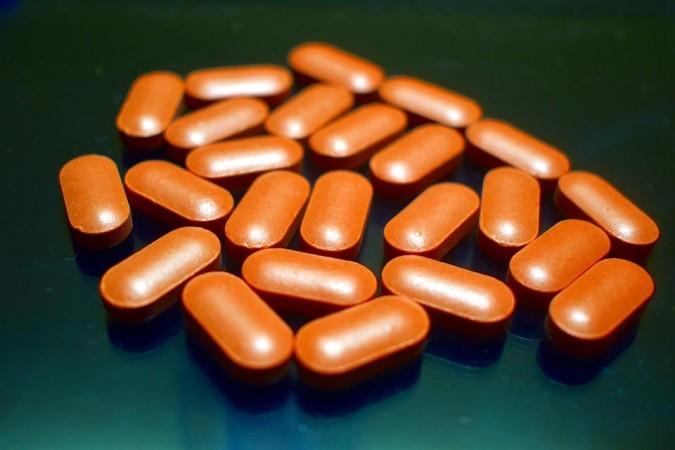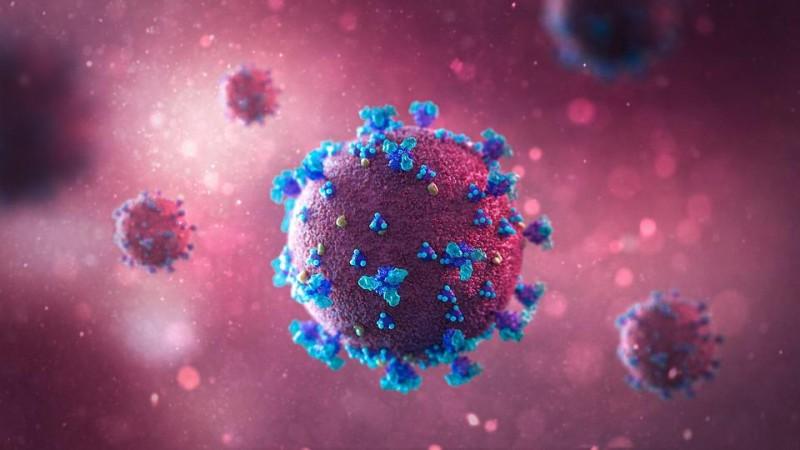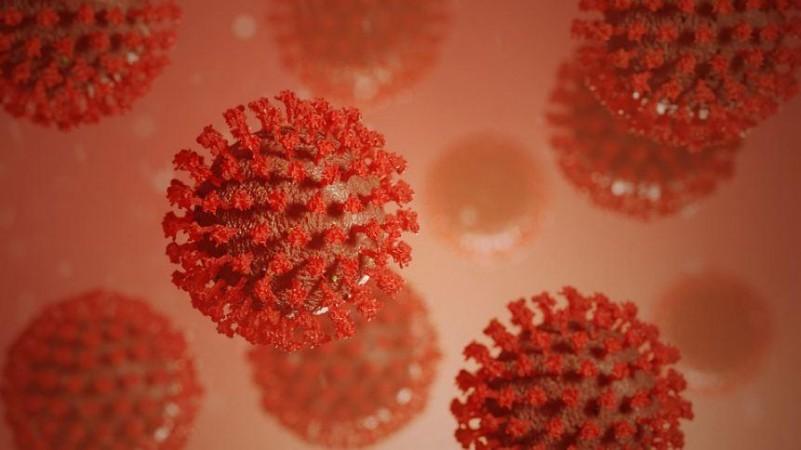Since the onset of the COVID-19 pandemic, scientists across the world have been working around the clock to find novel treatments that can tackle the SARS-CoV-2 virus. However, a section of the scientific community has turned to the repurposing of existing drugs to stop the coronavirus. Through one such attempt, scientists have discovered that an experimental drug, masitinib, can inhibit the replication of the pathogen within cells and is also effective against a few variants of concern (VOC).
According to the multi-institutional study, masitinib—a tyrosine kinase inhibitor—was able to block the replication of the novel coronavirus in human cell cultures and in animal models. The drug led to a decrease in the viral load by over 99 percent. Masitinib was also found to be effective against some of SARS-CoV-2's VOCs, other coronaviruses, and picornaviruses. The study was published in the journal Science.
"Inhibitors of the main protease of SARS-CoV-2, like masitinib, could be a new potential way to treat COVID patients, especially in early stages of the disease. COVID-19 will likely be with us for many years, and novel coronaviruses will continue to arise. Finding existing drugs that have antiviral properties can be an essential part of treating these diseases," said Dr. Savas Tay, lead author of the study in a statement.
Existing Drugs to the Rescue?

Compared to the development of new drugs from scratch, repurposing existing ones has several benefits. Not only does it save a lot of research time and costs, but also enables quicker approval and adoption. Since the beginning of the COVID-19, scientists have looked to existing drugs for solutions. Drugs such as interferon, remedesiver, and hydroxychloroquine, among others, have been tested as likely treatment options. Antibiotics such as azithromycin have also been used to manage symptoms and infections accompanying COVID-19.
Taking the repurposing route, the team screened a library of 1900 drugs that have been approved for human use or with substantial safety data in humans (Phase II or III trials). Their ability to inhibit infection of cells by OC43, a coronavirus that causes was common cold was evaluated. OC43 was chosen as it belongs to the same group of beta-coronaviruses as the SARS-CoV-2. Cultured cells were used for testing the effect of the drugs on the infection.
Following this, 30 drug candidates were chosen and tested against the SARS-CoV-2 in cell cultures. Among these, 20 drugs were found to inhibit the coronavirus. These candidates were also evaluated against the 3CL protease, an enzyme possessed by coronaviruses that permits them to replicate within cells.
Inhibiting Viral Replication

One drug candidate was found to inhibit the 3CL viral enzyme completely inside cells—masitinib. These results were confirmed using X-ray crystallography. The drug acted by attaching itself to the 3CL protease active site and prevented further replication of the virus. "That gave us a strong indication of how this drug works, and we became confident that it has a chance to work in humans," stated Dr. Nir Drayman, corresponding author of the study.
Masitinib is an oral tyrosine kinase inhibitor (TKI). Tyrosine kinases are enzymes that promote the activation of proteins that can result in the worsening of conditions such as cancer. As of now, masitinib is approved only for the treatment of a form of cancer called mast-cell tumors (MCTs) in dogs. While it has not received approval for human uses, it has been assessed in clinical human trials for several diseases.
Some of the diseases that masitinib has been evaluated for in Phase I, II, and III trials are asthma, Alzheimer's disease, gastrointestinal cancer, melanoma, and multiple sclerosis, among others. While the drug has been found to be generally safe in humans, it does lead to certain side effects. This includes gastrointestinal disorders and edema, and also an increase in the potential risk of heart disease in patients.
Effective Against Several Viruses

After showing promising results in cell cultures, masitinib was tested in a mice model next. 20 mice were infected with the SARS-CoV-2 virus intranasally. Among the infected mice that were treated with the investigational drug, a remarkable reduction in the viral load was observed. Not only was there a decrease of over 99 percent in the viral load but also diminished inflammatory cytokine levels in mice.
Concurrently, masitinib was also tested against other viruses in cell cultures. It was learnt that the drug was also effectual against a group of viruses known as picornaviruses. Rhinoviruses that cause the common cold, Hepatitis A, and polio, are some of the viruses belonging to the group. Most importantly, when masitinib was tested against three VOCs—Alpha, Beta, and Gamma—it showed equal efficiency against them. This is because the drug binds with the virus' protease and not its surface.
Currently, the authors are working towards modifying the drug to increase its effectiveness as an antiviral. "Masitinib has the potential to be an effective antiviral now, especially when someone is first infected and the antiviral properties of the drug will have the biggest effect. This isn't the first novel coronavirus outbreak, and it's not going to be the last. In addition to vaccines, we need to have new treatments available to help those who have been infected," emphasized Dr. Drayman.












!['Had denied Housefull franchise as they wanted me to wear a bikini': Tia Bajpai on turning down bold scripts [Exclusive]](https://data1.ibtimes.co.in/en/full/806605/had-denied-housefull-franchise-they-wanted-me-wear-bikini-tia-bajpai-turning-down-bold.png?w=220&h=138)
![Nayanthara and Dhanush ignore each other as they attend wedding amid feud over Nayanthara's Netflix documentary row [Watch]](https://data1.ibtimes.co.in/en/full/806599/nayanthara-dhanush-ignore-each-other-they-attend-wedding-amid-feud-over-nayantharas-netflix.jpg?w=220&h=138)



